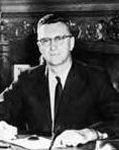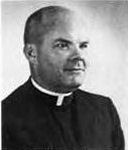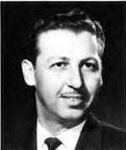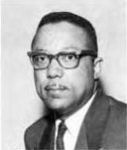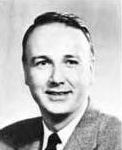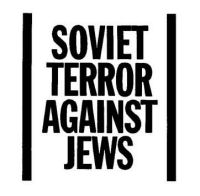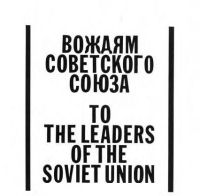|
First Contact with the Jewish Community Federation of Cleveland In mid-1963 we contacted the Jewish Community Federation of Cleveland (JCFC) to ascertain if any national Jewish organization was providing guidance on the Soviet Jewry issue and if a committee had been set up locally to address the issue. We were surprised to learn that nothing was afoot nationally or locally. Herb Caron appealed to the JCFC to establish a committee to look into the issue and make recommendations for appropriate action. And subsequently, a subcommittee on Soviet Jewry was set up under the Community Relations Committee of the Federation. After a few meetings it was apparent to us that the pace was pedestrian and that little of practical value was forthcoming. For example, the subcommittee did agree to establish a speakers’ bureau — good. Yet, when push came to shove, it was the efforts of Don Bogart and Dave Gitlin of Beth Israel that produced a slide lecture on Soviet Jewry. And, when speakers were needed to fill requests, members of our little Beth Israel group ended up doing the entire job. Launching the Cleveland Committee on Soviet Anti-Semitism (CCSA) In October 1963, we formally organized the Cleveland Committee on Soviet Anti-Semitism, a nonsectarian, inter-racial, inter-religious entity. Herb Caron and Dan Litt were instrumental in lining up the board of directors. As honorary chairman they enlisted Ralph Locher, the Mayor of Cleveland. Other members were Msgr. Cahill, President of St. Johns College; Bruce Whittemore, director of the Cleveland Area Church Federation; Leo Jackson, a prominent African-American and a member of the Cleveland City Council; and Rabbi Phil Horowitz, the associate rabbi at Fairmont Temple. Herb took on the job of executive secretary to the board. With a letterhead and an honorary board, the Committee was off and running.
Strange as it seems, our small operation was in contact with people across America, who sought information and advice or to exchange experiences. (In retrospect, a measure of the latent enthusiasm to succor Soviet Jews that later would be called ‘the Soviet Jewry movement’) We had no central office; rather we worked out of our individual homes. Periodically, we met to confer at Herb’s house. We were committed to doing what ever we could. next > On the National Scene |
|||||||||||||||||||||||||
|
|
| © 2007 Louis Rosenblum |
